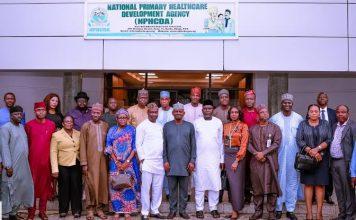Training health workers to enhance their skills and capabilities is essential in addressing the issue of brain drain caused by migration, according to the National Primary Healthcare Development Agency (NPHCDA).
Mr. Julius Idoko Brain drain, the NPHCDA Coordinator in Cross River, made this statement during the commencement of a five-day capacity training for 100 frontline healthcare workers in the state on Tuesday. He emphasized that the agency is actively working to combat the migration of healthcare professionals.
The training initiative, spearheaded by Health Minister Prof. Mohammad Pate, is designed to not only enhance the skills of healthcare workers but also reduce their inclination to seek opportunities abroad.
Idoko noted, ”The rate at which health workers leave the country has become worrisome, this training is to build their capacities.
”This initiative is one of the steps we are taking to curb the continuous exodus of healthcare professionals from the country.
”If we continue to engage and improve the capacity of our health workers, there will be no reason for them to leave the country.”
The initiative has set its sights on reaching at least 120,000 healthcare workers employed in public healthcare facilities nationwide, as highlighted by the coordinator.
Meanwhile, the Commissioner for Health in Cross River, Dr. Henry Ayuk, emphasized the significance of the training program for the state, particularly in light of its unique challenges.
Dr. Ayuk emphasized that the training session is designed to not only enhance the skills of healthcare workers but also to elevate their overall performance levels.
Furthermore, the commissioner revealed plans by the state government to outfit a minimum of 450 primary health centers within the next year, with the goal of improving healthcare services.
In a separate statement, the Director-General of the Cross Rivers Primary Healthcare Development Agency, Dr. Vivian Out, praised the NPHCDA for their timely and well-intentioned initiative.
Dr. Out further stated that participants who benefited from the program will be tasked with training others to ensure the presence of a vibrant and efficient healthcare workforce in the region.
